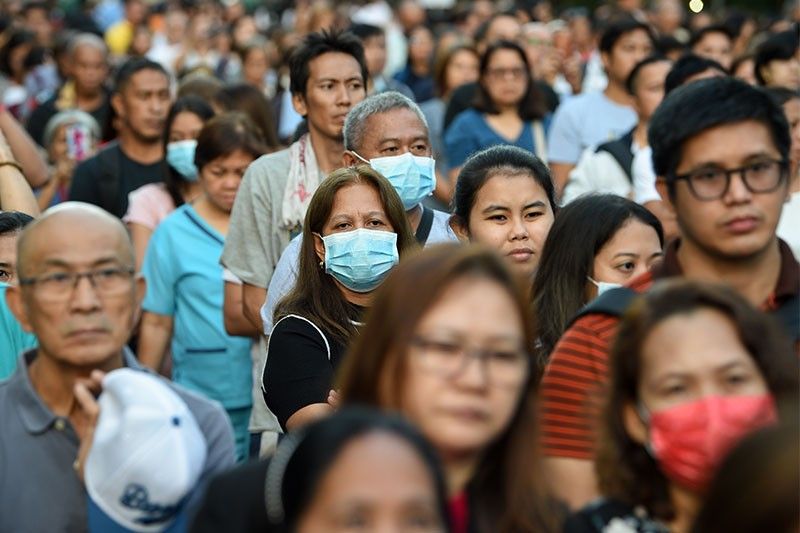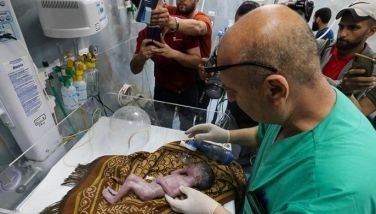Coronavirus time bomb: America's uninsured and brutal work culture

WASHINGTON, United States — Like many Americans, bartender Danjale Williams is worried about the growing threat of the novel coronavirus.
What makes the 22-year-old in Washington even more frightened: The thought of medical bills she just can't afford, as one of almost 27.5 million people in the United States who don't have health insurance.
"I definitely would second guess before going to the doctor, because the doctor's bill is crazy," she said. "If it did come down to that, I don't have enough savings to keep me healthy."
As the virus begins spreading in the west of the country, where the first death was reported Saturday, public health experts warned the US has several characteristics unique among wealthy nations that make it vulnerable.
These include a large and growing population without medical insurance, the 11 million or so undocumented migrants afraid to come into contact with authorities, and a culture of "powering through" when sick for fear of losing one's job.
"These are all things that can perpetuate the spread of a virus," said Brandon Brown, an epidemiologist at UC Riverside.
The number of Americans without health insurance began falling from a high of 46.7 million in 2010 following the passage of Obamacare (the Affordable Care Act), but has risen again over the past two years.
The current figure is about 8.5 percent of the population.
Getting through the door
Public health experts often worry about the destructive potential of a pandemic in poorer parts of the world like sub-Saharan Africa or South Asia.
These poverty-plagued regions have hospitals that are ill-equipped to stop the spread of infectious diseases, or to adequately care for patients needing breathing assistance, which the most severe cases of COVID-19 require.
By contrast, the US has some of the world's best hospitals and medical staff, but those not lucky enough to have good insurance through their employer, and not poor enough to qualify for state insurance, often opt out of the system entirely.
A routine doctor's visit can run into hundreds of dollars for those without coverage.
"I think that it's possible if this has the sustained spread, that might highlight some of those health care disparities that we already know about and are trying to work on, but haven't figured out a way to solve," said Brian Garibaldi, the medical director of Johns Hopkins Hospital's biocontainment unit.
That's not to say uninsured people have no recourse if they fall seriously ill.
US law requires that people who are truly sick get the care they need, regardless of ability to pay.
Presentee-ism
One of the key messages the Centers for Disease Control and Prevention (CDC) has put out about the coronavirus is to stay home if you have mild respiratory symptoms, except to go to the doctor once you have called in and if they think you need to.
"But a lot of people, depending on their jobs, their position and their privilege, are not able to do that," said Brown.
The US is alone among advanced countries in not offering any federally mandated paid sick leave.
Though private companies offer an average of eight days per year, only 30 percent of the lowest paid workers are able to earn sick days, according to the Economic Policy Institute.
For many of these people, missing even a day's work can make a painful financial dent.
An October 2019 nationwide survey of 2,800 workers by the accounting firm Robert Half found that 57 percent sometimes go to work while sick and 33 percent always go when sick.
Vaccine cost fears
As the global death toll from the virus approaches 3,000 and the US braces for a wider outbreak, the race is on to develop vaccines and treatments.
Current timeline estimates for the leading vaccine candidate are 12-18 months, but will it be affordable for all? That question was put to Health Secretary Alex Azar in Congress last week.
His response: "We would want to ensure that we work to make it affordable, but we can't control that price because we need the private sector to invest."
Ed Silverman, a columnist for industry news site Pharmalot, panned the comment as "outrageous."
"No one said profits are verboten," he wrote. "But should we let some Americans who may contract the coronavirus die because the price is out of reach?"
- Latest
- Trending




























